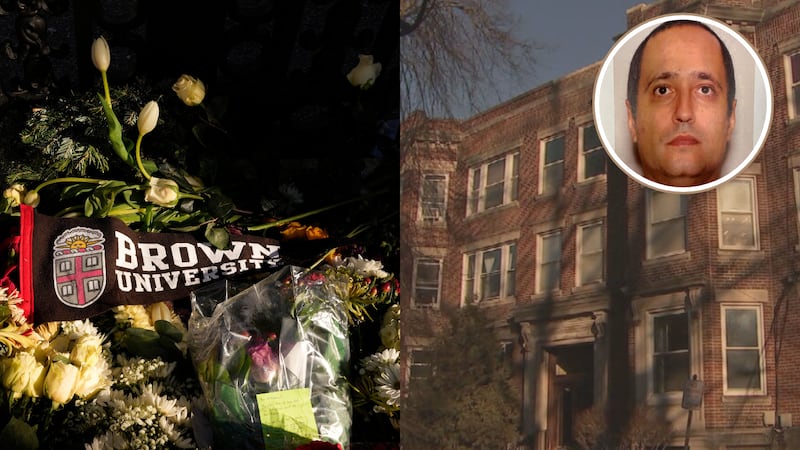BOSTON — A Massachusetts man who worked in the technology industry and performed government work has pleaded guilty to cyberstalking more than a half dozen Massachusetts women in a brutal campaign to “terrorize” his victims between 2008 and 2024, the U.S. Attorney said Thursday.
James Florence Jr., 37, of Plymouth, pleaded guilty in federal court in Boston on Thursday to seven counts of cyberstalking and one count of possession of child pornography, U.S. Attorney Leah Foley said in a statement.
U.S. District Court Judge Richard Stearns scheduled sentencing for July 23. Florence remains in custody since his arrest in September 2024.
Starting in 2008, Florence created and used 62 accounts across nearly 30 online platforms to harass and impersonate his victims, prosecutors said. He posted thousands of fake, AI-generated, or photoshopped pornographic images of the victims along with their personal information.
According to court filings, Florence has significant knowledge of computers and previously worked for software companies and “at an emerging technology organization” where he performed work for the U.S. government. Officials did not state where Florence worked and in what capacity.
“With this knowledge, he employed a variety of tactics to evade law enforcement – via VPN services, anonymous overseas ‘revenge porn’ websites and encrypted foreign email providers that do not respond to U.S. legal process or retain identifying records,“ Foley said in her statement.
Prosecutors said Florence waged a vicious cyberstalking campaign against his victims and “preyed on women in his life, exploiting their relationships and going to great lengths to betray and terrorize them.”
For one victim, Florence designed a collage of digitally-altered images depicting her nude, which he posted to a website alongside her full personal information, encouraging viewers to “Post & Share Her Everywhere. Make The (expletive) Famous.”
For another victim, Florence created a false online persona describing her sexual preferences, fabricated stories about sex toys and equipment in her home and posted her home address inviting strangers to contact her for sex, prosecutors said.
Two of the victims were minors when Florence began cyberstalking them, Foley said.
Florence’s “elaborate, sustained online harassment campaigns” included hacking into victims’ personal accounts. Then, through the dozens of fake accounts he created, he disseminated thousands of doctored or AI-generated sexually explicit images, prosecutors said.
According to court filings, Florence targeted women he knew personally, as well as acquaintances, stealing photos from their accounts, digitally altering them to appear nude or engaged in sexual acts and then posting them publicly alongside their names, home addresses and other identifying details.
Foley said for nearly all seven victims, Florence’s cyberstalking campaigns included:
- Creating “imposter” social media accounts designed to appear as if they were operated by the victims themselves;
- Posting sexually explicit, AI-generated or photoshopped images of victims, often tagging the victims’ real accounts to maximize exposure;
- Publishing victims’ personal information, including driver’s license photos, home addresses and professional affiliations, with messages urging others to humiliate and expose them;
- Using hacked and compromised personal accounts to surveil victims and gain access to additional private content;
- Attempting to sell doctored nude images of one victim online; and
- Setting up notifications to monitor any changes to victims’ online biographies.
Florence often prompted strangers to contact the victims directly – with some unknown senders demanding that the victims produce real sexually explicit content under threat of distributing the doctored images to friends, family and professional contacts, prosecutors said.
For one of the victims, Florence used the name, image and other personal identifying information to program at least three AI-driven chatbots to interact with strangers across multiple platforms in sexually explicit conversations and disclose how to contact or find the victim.
Many of Florence’s victims continue to receive harassing and threatening messages from unknown individuals who encountered the content he created and distributed online, prosecutors said.
Investigators uncovered the following items during a search of Florence’s home in Plymouth last September:
- Dozens of pairs of women’s underwear and socks stolen from his victims;
- A custom phone case featuring the image of one of the victims;
- At least 11 digital wallpapers of his victims stored on his phone;
- At least one photo of a victim taken when she was a minor; and
- 62 images and four videos of child sexual abuse material, depicting minor female victims between the ages of approximately eight and 15 years old.
For each charge of stalking by electronic means, Florence faces a sentence of up to five years in prison, three years of supervised release and a fine of $250,000.
For the charge of possession of child pornography, Florence faces a sentence of up to 20 years in prison, at least five years and up to a lifetime of supervised release and a $250,000 fine.
If you or someone you know is a victim of cyberstalking, visit the Office for Victims of Crime website.
This is a developing story. Check back for updates as more information becomes available.
Download the FREE Boston 25 News app for breaking news alerts.
Follow Boston 25 News on Facebook and Twitter. | Watch Boston 25 News NOW
©2025 Cox Media Group







